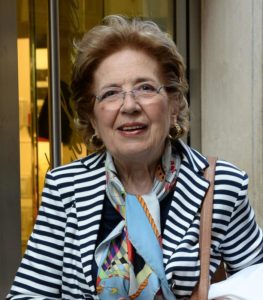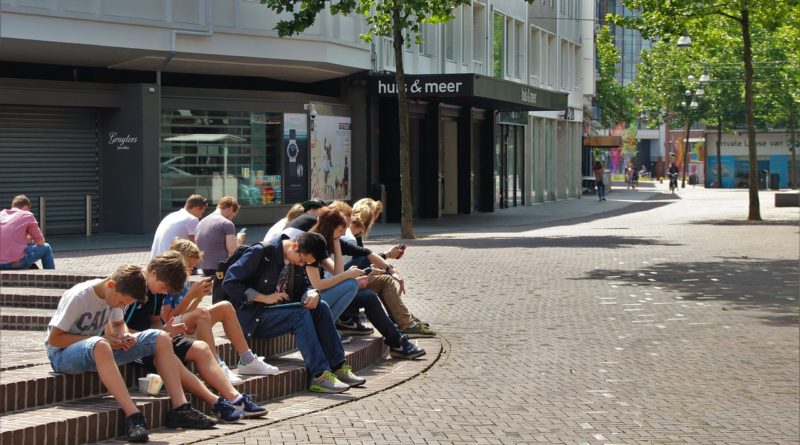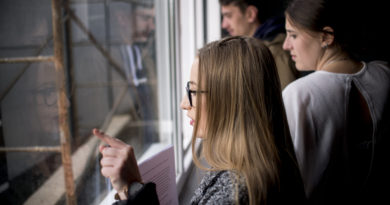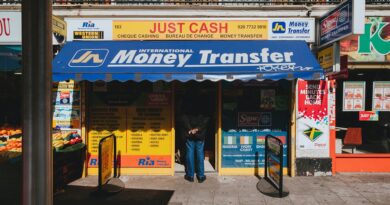The Erasmus programme will survive Brexit, says woman who created it
 Erasmus, the EU student exchange programme, will live on in the UK, according to the woman who set up the initiative.
Erasmus, the EU student exchange programme, will live on in the UK, according to the woman who set up the initiative.
As Britain leaves the European Union, everything in the UK-EU relation has to be renegotiated: from free movement rights to trade in goods and services and cooperation in scientific research. But Sofia Corradi, the Italian behind the creation of the Erasmus programme, is confident that student exchanges will continue unaltered, perhaps just under a new name. “If there is one thing that does not worry me about Brexit is the future of the Erasmus programme,” she said in an interview with Europe Street.
Considered one of the major successes of the European Union, the youth mobility scheme celebrates this year its 30th anniversary. Since its launch, in 1987, more than 5 million Europeans have gone to study, work or train abroad and 600,000 people from the UK have taken part in the various strands of the programme.
But the start was not easy. Sofia Corradi, a professor of lifelong education who is now 82, went through “20 years of defeats” before seeing her idea realised.
New York, 1958
It all begun when she was studying law at the University of Rome, today’s La Sapienza. A brilliant student, Mrs Corradi won a Fulbright scholarship for a master’s at Columbia University in New York. Back in Rome after a year, she was convinced that her studies abroad would be recognised in Italy, allowing her to skip the three final exams before the thesis. When she enquired about it, the response was unexpected. “Do you think you can have fun around the world and we give you a degree?” was the sour reaction of the university director. “He reprimanded me in front of other students queuing at the desk. I was mortified and I still feel that humiliation when I talk about it,” she says.
Soon after graduating with honours, however, the benefits of her experience became apparent. “Living abroad had changed me and now I was sought after by employers. I had it easier than others finding a job and my career kept progressing. I was confident, a wonderful feeling for a young person. It was that awareness that made me think a period of immersion in another culture should become common practice.”
The right connections
Mrs Corradi became scientific consultant for the Conference of Rectors of Italian Universities, where she was responsible for international relations. With all key contacts at hand, her networking could begin. It did not take long before she found three enthusiastic supporters, the Rectors of the universities of Pisa, Bologna and Pavia.
“It was pretty obvious. If you go to see a doctor in France, you would expect he or she has the same knowledge of a doctor in Italy,” she explains. “So we went through the curricula of different countries to understand if they were comparable. Not surprisingly, we found they were very similar. This was the starting point to discuss student exchanges.” With that resolve, in 1969 the group travelled to France and Germany, preparing proposals for their counterparts in the train across the Alps.
A strong motivation
The first of many bold moves, her action was motivated not only by academic achievement. “It was the time of the Cold War and I had the typical attitude of the young person who wants to change the world, so I channelled my anti-war sentiment in the Erasmus programme,” recalls Mrs Corradi. “I experienced conflict as a child, during World War II. In fact, one could say I had no childhood. I remember being evacuated with my mum and my sisters to a small town in the north of Italy, where the resistance, the fascists and the Germans were confronting each other on a daily basis. When we were waking up in the morning, we often did not know under what occupation we were and sometimes at night, we were hiding in the woods for fear of retaliation.”
“Then there was the Cold War, with escalating hostilities between America and Russia,” she continues. “One day in that period I read that there were 100 kilos of explosives for every human being on the planet. The next day I took my daughter to a check-up and the doctor told me she weighed 40 kilos. You’d move mountains with such numbers in your mind. Student exchanges to me were a way to promote peace and friendship among people.”
No legal basis in the Treaties
The problem was that the Treaty of Rome, which initiated what is now called European Union, did not include provisions on education, except for references to vocational training and the recognition of professional qualifications necessary for a mobile workforce.
Mrs Corradi managed to convince the then Italian Minister of Education, Riccardo Misasi, to bring up the issue with his French counterpart. The first meeting of the Education Ministers of the 6 countries forming the then European Community took place in 1971. They decided to continue the dialogue. But without a legal basis in the Treaty, ministers could only gather informally and had no power to deliberate. So the minutes of their unanimous decisions were left in Brussels to be approved by whichever next Council of Ministers, even if it was competent in other matters.
In this way, in 1976 ministers managed to approve a resolution for a “Community action in the field of education” and a trial version of the Erasmus scheme. The pilot run for 10 years, until 1986. “It was clear that the experience was having a positive impact. As a result of the exchanges, students were becoming diplomatic, open and forward-looking adults, and responsible citizens of the world,” Mrs Corradi says. Meanwhile, the European Community was also evolving. From the 6 countries of 1969, it had expanded to 12 in 1986, making it more difficult to reach unanimous agreement.
Opposition from the UK
As final negotiations were ongoing to formalise the programme, a couple of countries were opposing the decision. The United Kingdom was notably not thrilled at the idea of the Erasmus programme. “The argument was that the European Community focuses on economic cooperation, more specifically on agriculture and industry. The investment in a student mobility initiative seemed too high in comparison. Their proposal was to cut the number of scholarships,” recalls Professor Corradi. The scheme, however, was strongly supported by other countries and it was Heads of State who pushed it forward in 1986.
Erasmus, which stands for European Region Action Scheme for the Mobility of University Students, was finally launched in May 1987. In the first year it was open to only 3,200 students, but since then more than 5 million people from around 4,000 universities have taken part in the programme.
What happens now
Initially conceived for the mobility of students, the programme has now expanded into apprenticeships, volunteering opportunities and staff exchanges in the fields of education, training and sport (Erasmus+). The minimum placement is two months and the maximum is one year. During this time, participants receive a financial contribution, making the international exchange open to all. Along the years, the Former Yugoslav Republic of Macedonia, Iceland, Liechtenstein, Norway and Turkey have also joined the programme. But what will happen to the UK when the country leaves the EU?
Sofia Corradi is optimistic. “If there is one thing that does not worry me about Brexit is the future of the Erasmus programme. This is one of the most successful and least controversial initiatives of the European Union, it would be very short sighted to lose it,” she says. “I am confident that the programme will continue. Perhaps they will give it another name, they will call it ‘British something’ but the philosophy won’t change because there are only benefits when young people have the opportunity to travel and learn to look at the world with the eyes wide open.”
In 2016 Sofia Corradi received the Carlos V European Award by the Yuste Foundation for “being the driving force behind the most important international exchange programme for young students in Europe.” As part of the award, ten scholarships of EUR 2,500 will be granted in her name to PhD researchers for works on the theme “Peace and European values as a potential model for integration and progress in a global world”. Professor Sofia Corradi has been given a nickname and she likes to be called “Mamma Erasmus”.
Claudia Delpero © all rights reserved.
Photo courtesy: Pixabay; Sofia Corradi.






